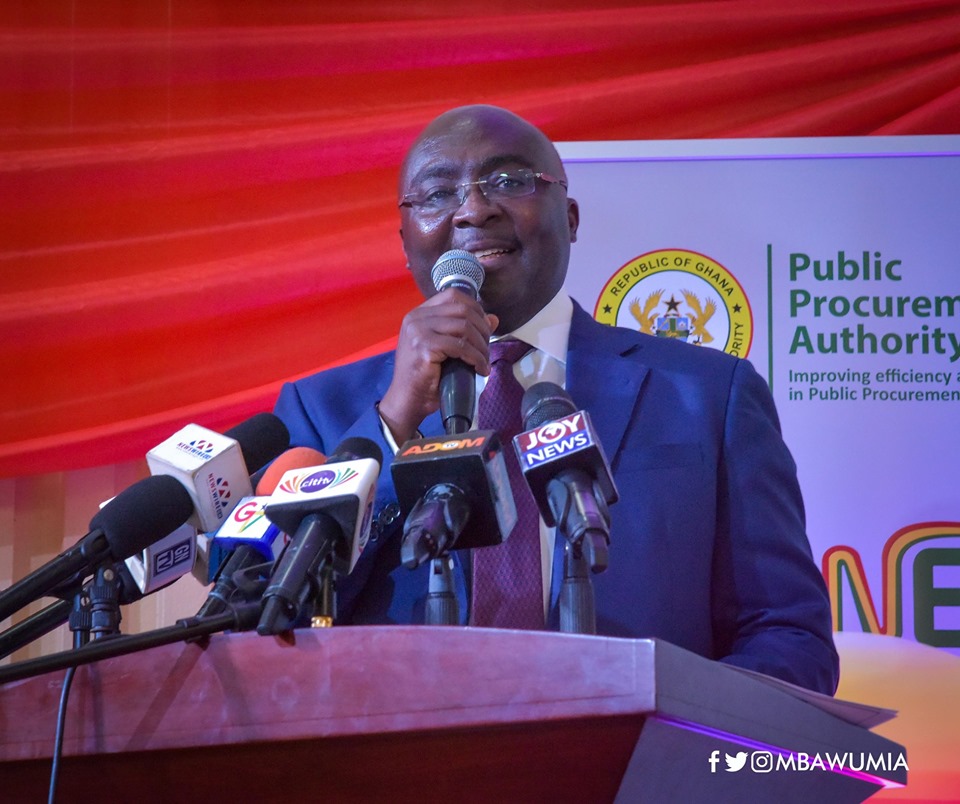Vice President of Ghana, Dr Bawumia on April 30, 2019 launched the first ever Electronic Procurement System in Ghana which is also the first of it kind in West Africa to help reduce procurement breaches in the public sector.
Government is expected to save up to US$100 million annually following the introduction of an electronic platform for procurement services within the public sector.
In order to cut down on procurement infractions, the government has launched a digital platform for the tendering processes for service providers who wish to do business with public institutions.
The move is to the ensure transparency and improve the efficiency of service delivery within the public sector.
The migration of the procurement processes onto an electronic system forms part of the Communications Ministry’s e-transform project which is funded through the World Bank’s US$97million credit.
Launching the platform, Vice President said the initiative will help reduce corruption in the public sector.
“At the heart of government’s drive to digitize our economy is the need to facilitate the delivery of government services, formalize the economy, de-risk the business environment, and above all deal with matters of corruption,” Vice President Bawumia indicated.
So far, six heavy spending public institutions including COCOBOD, the Volta River Authority and the Tema Metropolitan Assembly have already been migrated onto the e-procurement platform.
Per the system, service providers will now have to log on to the platform for tendering, awarding of contracts, evaluation of contracts and file complaints using the internet.
There are currently 11,000 service providers captured by the Public Procurement Authority.
Government is hoping to use the platform to beat down prices of products purchased by public institutions by at least 20 percent through competitive bidding.
The Electronic Procurement System costs the government of Ghana $5 million.
According to the World Bank, the migration of the procurement processes unto an electronic platform will save the country an amount equivalent to 2 percent of Ghana’s GDP.




